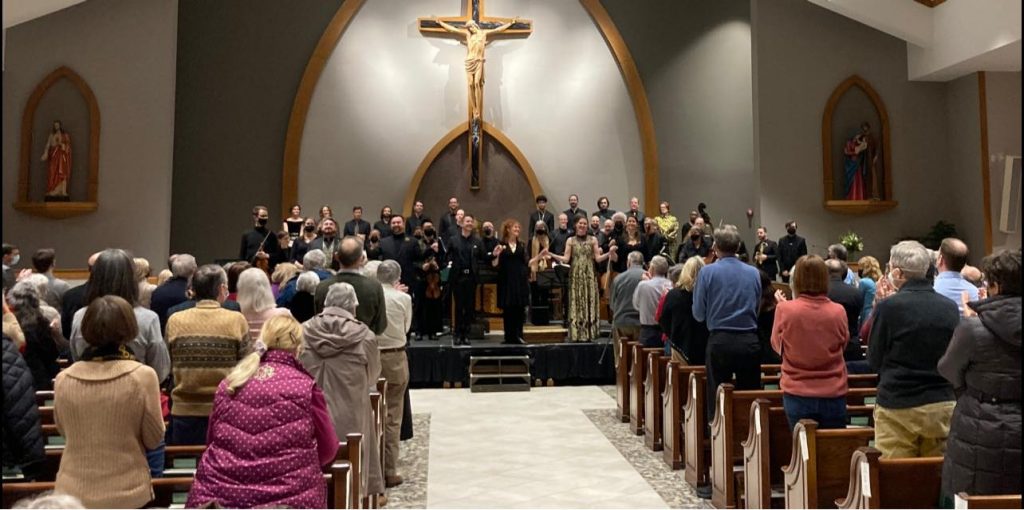by Peter Feher

Artistic director Jeannette Sorrell adapted the Baroque score with certain modern expectations in mind. Her production retains Handel’s solemn opening, achieving a kind of period authenticity, but jettisons much of the repetition and inessential action in the rest of the music. The result is a lean and engaging dramatic arc — less than two hours — that translates 18th-century entertainment for the 21st century.
In its time, Israel in Egypt was a departure from the model. Like operas, oratorios told stories, but Handel’s take on the form played down the narrative, emphasizing the pageant of the performance instead. The static monumentality that’s now synonymous with oratorios (think Messiah) confused some of the composer’s contemporaries. In a sense, Sorrell’s adaptation straightens things out, returning the genre to its older, storytelling role.
Not that this Israel in Egypt didn’t have its imposing moments. The stars of the Thursday, February 17 performance at St. Paul’s Episcopal Church in Akron were Apollo’s Singers, divided into two confident choruses who, back and forth and together, delivered the music’s imperious statements. (Pictured: the ensemble’s February 18 performance at St. Raphael Catholic Church in Bay Village.)
From the beginning, the choruses bask in Handel’s favorite compositional device. Portraying the Israelites lamenting the death of their protector Joseph, the vocalists sigh on the word “sigh,” an early instance of the word painting that colors much of the score (and has contributed to its enduring appeal).
That correspondence between music and text kicks into high gear in Part II, recounting the Exodus story and the plagues of Egypt. When the land brings forth frogs, the orchestra hops along in dotted rhythms. The smiting of the first-borns is carried out by violent bow strokes in the strings. The waters of the Red Sea surge in triplet passages across the ensemble and crash with every hit of the timpani, brought off with drama under Sorrell’s conducting.
Even in its more serious moments, the score seems to be winking with these gestures, and in truth, you’re unlikely to hear a more comical telling of a biblical story. Tenor Jacob Perry sang the recitatives with the eyebrow-raising intrigue of a narrator. Countertenor Daniel Moody played up the humor of his plagues aria in appropriately unsubtle fashion.
The soloists joining Apollo’s Fire for these performances generally favored dramatic delivery over pinched period detail. Positioned at lecterns on either side of the orchestra, they sang into high notes rather than away from them, and always with plenty of vibrato. Baritone Edward Vogel had a voice big enough for an opera house. Sopranos Margaret Carpenter Haigh and Molly Netter found an expansive sound that rivaled the entire chorus near the end of the oratorio’s celebratory finale.
When entertainment is the goal, deviating from strict performance practice makes perfect sense.
Published on ClevelandClassical.com February 23, 2022.
Click here for a printable copy of this article



